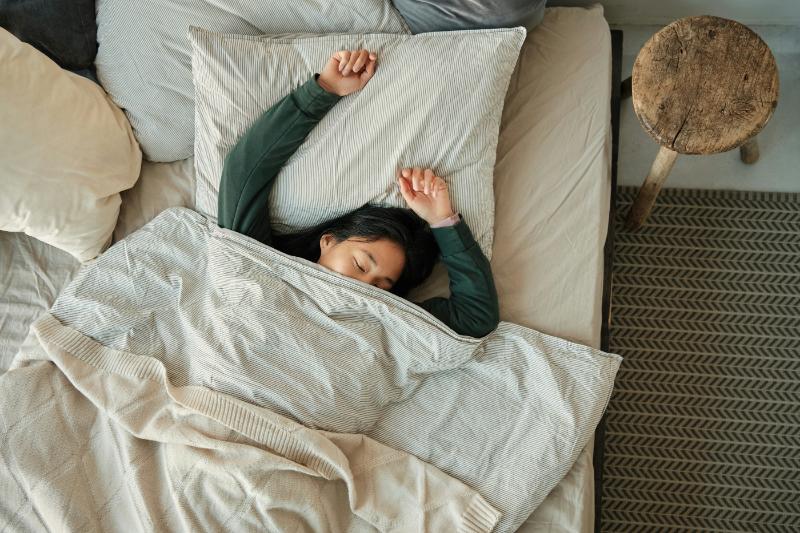Feeling sluggish and lacking in get-up-and-go can be frustrating. The good news is, there are many steps you can take to improve your general health and naturally boost your energy levels. Here are some key areas to focus on:

Eat A Balanced Diet
A diet rich in fruits, vegetables, whole grains, and lean protein provides your body with the essential nutrients it needs to function at its best. Refined carbohydrates, sugary drinks, and unhealthy fats can lead to energy crashes. Aim for a rainbow of colourful fruits and vegetables on your plate, and choose whole grains over white bread and pasta whenever possible. Alongside a nutritious diet, supplements like Roundhouse Morning Kick can help fuel your mornings, keeping your energy levels high and your body feeling at its best throughout the day. Lean protein sources like fish, chicken, beans, and lentils will help you feel fuller for longer.
Try To Stay hydrated

Water is vital for every bodily function. Dehydration can zap your energy levels and leave you feeling foggy-headed. Aim to drink plenty of water throughout the day, even if you don’t feel thirsty. Carrying a reusable water bottle with you can be a handy reminder to keep sipping and to track how much water you are consuming throughout the day.
Don’t Skip Meals
Regularly scheduled meals help keep your blood sugar levels stable, preventing those dreaded energy slumps. Aim for three balanced meals a day with healthy snacks in between to keep your hunger at bay. Listen to your body and look out for signs of low blood sugar, such as shaking, dizziness, and fatigue.
Vitamin D Levels
Vitamin D helps regulate your circadian rhythm and can improve your mood and energy levels. The best way to get more vitamin D is to spend more time outside in the sunshine. Even on days that don’t look very sunny, a 15-minute walk per day can still help you to get the level of vitamin D you need to stay healthy. Spending more time outdoors can sometimes trigger allergies such as hay fever which can affect your energy levels. Speak to your GP to assess the treatment you need for hay fever to help reduce symptoms and allow you to enjoy the great outdoors allergy-free.
Vitamin D plays a role in energy production. If you don’t get enough sunlight, talk to your doctor about whether a vitamin D supplement might be right for you. Using sunbeds rather than natural sunlight can be more detrimental to your health due to risks associated, such as a potentially increased risk of skin cancer.
Prioritise Quality Sleep

Sleep is essential for physical and mental rejuvenation. When you’re well-rested, you wake up feeling refreshed and energised. However, there can be a number of factors that can cause poor-quality sleep or make it harder for you to fall asleep.
Establish a regular sleep schedule: Go to bed and wake up at roughly the same time each day, even on weekends. This helps regulate your body’s natural sleep-wake cycle, known as your circadian rhythm. Once you get into a consistent routine, your body will be trained to expect sleep at a certain time, making it easier to fall asleep when you go to bed.
Create a relaxing bedtime routine: Wind down before bed with calming activities like taking a warm bath, reading a book, or listening to soothing music. Avoid screen time for at least an hour before bed, as the blue light emitted from electronic devices can interfere with sleep. High-stress levels or mental health conditions such as anxiety can make it hard to get to sleep. Asking your GP about medication options and working with a counsellor can help with managing stress and anxiety and improving sleep quality.
Optimise your sleep environment: Make sure your bedroom is dark, quiet, and cool. Invest in blackout curtains, earplugs, and a comfortable mattress and pillows to create an environment that promotes good sleep. Banning electronic devices in your bedroom will train your brain to associate your bedroom with relaxing and going to sleep. You can also try products such as lavender pillow sprays, essential oil diffusers, and herbal teas to help promote relaxation and sleep.
Manage Stress Effectively
Chronic stress can have a significant impact on your overall health and energy levels. Learning healthy ways to manage stress can make a big difference.
Identify your stress triggers: What situations or thoughts tend to make you feel stressed? Once you’re aware of your triggers, you can develop strategies to avoid them or cope with them more effectively.
Relaxation techniques: Practices like deep breathing exercises, meditation, and yoga can all help to reduce stress and promote feelings of calm. There are many free resources available online and in apps to help you get started.

Make time for activities you enjoy: Schedule time for hobbies and activities that bring you joy and help you relax. Whether it’s spending time in nature, listening to music, or catching up with friends, make sure to prioritise activities that de-stress and recharge your batteries. Being around green spaces and spending time in the company of other people are believed to help reduce stress and help with other mental health conditions such as anxiety and depression. Consider taking up activities such as hiking, cycling, or joining local community groups to help you spend more time in the great outdoors and boost your socialising while improving your mental health.
Move Your Body Regularly

Physical activity is a fantastic way to boost your energy levels and improve your overall well-being. Start by finding an activity you enjoy. Keep in mind that exercise doesn’t have to be a chore. Find activities you genuinely enjoy, whether it’s going for a brisk walk, joining a dance class, or swimming. You’re more likely to stick with an exercise routine if you find it fun.
If you’re new to exercise, start slowly and gradually increasing your workouts’ intensity and duration as your fitness improves. Aim for at least 150 minutes of moderate-intensity exercise per week: This can be broken down into smaller chunks throughout the week. Even short bursts of activity, like taking the stairs instead of the lift, can make a difference.
Limit Alcohol and Caffeine

While alcohol and caffeine can provide a temporary energy boost, they can disrupt your sleep patterns and leave you feeling more tired in the long run.
Moderate your alcohol intake: Excessive alcohol consumption can lead to dehydration, poor sleep quality, and fatigue. Alcohol is a type of depressant, so not only can it be negative for your physical health, but it can also negatively affect your mental health too. Try and save alcohol consumption for an occasional treat rather than daily consumption, and don’t drink over the recommended daily intake.
Be mindful of caffeine: Caffeine can interfere with sleep, especially if consumed later in the day. Consider limiting your caffeine intake, particularly in the afternoon and evening. If you’re experiencing symptoms such as heart palpitations, dizziness, or low energy, it could be caused by caffeine. Gradually cutting down on caffeine can help reduce these symptoms and eventually boost your energy levels without relying on a caffeine hit.
Consistency is key. By making small, sustainable changes, you can help gradually improve your general health and see improvements in the energy levels you have on a daily basis. The more consistent you are with healthy changes, the more you’ll notice them boosting your health, energy, and general well-being.
